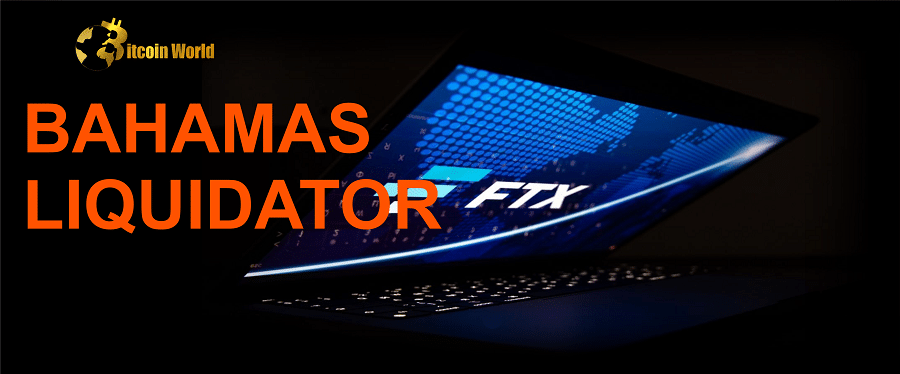The saga of FTX has taken a significant turn! In a move that offers a glimmer of hope for those affected by the exchange’s collapse, the two entities overseeing FTX’s remains – its debtors in the United States and its liquidators in the Bahamas – have announced a unified strategy. Think of it as two halves of a team finally getting on the same page to tackle a monumental challenge: recovering assets and getting them back to those who lost out.
What’s the Big News?
On January 6th, a joint press release confirmed that after much discussion, a framework for asset recovery is in place. While the fine details are still being ironed out, this agreement signifies a major step forward. As John J. Ray III, the current CEO and Chief Restructuring Officer of FTX, put it:
“We would like to thank all of the Joint Provisional Liquidators of FTX DM… There are some issues where we do not yet have a meeting of the minds, but we resolved many of the outstanding matters and have a path forward to resolve the rest.”
So, what does this agreement actually entail? Let’s break down the key components:
- Information Sharing: Both sides will actively share information, which is crucial for a comprehensive understanding of FTX’s assets and liabilities.
- Property Return: The plan includes mechanisms for the return of property, aiming to untangle the complex web of FTX’s holdings.
- Joint Legal Action: Where necessary, the two entities will collaborate on legal actions against other parties potentially involved in the FTX downfall.
- Maximizing Stakeholder Recoveries: This is the headline everyone wants to hear! The primary goal is to maximize the amount of money returned to former FTX customers and other stakeholders.
The Crypto Puzzle in the Bahamas
A significant part of the agreement involves the cryptocurrency assets held in a Fireblocks wallet by regulators in the Bahamas. This has been a point of contention, so this agreement brings much-needed clarity.
What’s the Story with the Crypto?
Since December 29th, the Bahamas Securities Commission has acknowledged holding a substantial amount of cryptocurrency – reportedly around $3.5 billion. However, FTX previously alleged that regulators took $300 million without proper authorization. The current agreement signals a more collaborative approach to managing these assets, with both parties expressing satisfaction with the protection provided by the Bahamian regulators.
Real Estate in the Mix
Interestingly, the agreement also mentions the sale of real estate in the Bahamas. This raises some questions:
Are We Talking Offices or Luxury Condos?
It’s currently unclear whether this refers to FTX’s operational offices or the lavish condominiums where FTX executives resided. Either way, the sale of these properties will contribute to the asset recovery pool.
What Happens Next? The Approval Process
This agreement isn’t finalized just yet. It requires the green light from courts in two different jurisdictions:
- United States Bankruptcy Court in Delaware: Overseeing the bankruptcy proceedings of FTX Trading Ltd.
- Supreme Court of The Bahamas: Handling the liquidation of FTX Digital Markets.
Getting approval from both courts is a crucial step in making this recovery plan a reality.
The Shadow of Criminal Proceedings
It’s important to remember that while this asset recovery plan progresses, separate criminal proceedings are ongoing in the Southern District of New York. These proceedings involve former FTX CEO Sam Bankman-Fried and his associates and are entirely distinct from the asset recovery efforts.
Why This Agreement Matters
This agreement between the US and Bahamian entities offers several potential benefits:
- Increased Efficiency: Working together streamlines the complex process of asset identification and recovery.
- Greater Transparency: Collaboration can lead to more transparency for stakeholders who have been left in the dark.
- Maximized Recoveries: By pooling resources and expertise, the chances of recovering more assets increase.
- Reduced Legal Battles: Cooperation can minimize costly and time-consuming legal disputes between the two jurisdictions.
What are the Challenges Ahead?
Despite this positive development, challenges remain:
- Valuation of Assets: Determining the fair value of volatile cryptocurrency assets is a complex task.
- Legal Hurdles: Navigating the legal systems in two different countries presents its own set of complexities.
- Unidentified Assets: There’s always the possibility of undiscovered or hidden assets that could further complicate the process.
- Timeframe: Even with this agreement, the process of recovering and distributing assets will likely take a significant amount of time.
Looking Ahead: What Can Stakeholders Expect?
While there are no guarantees, this agreement provides a more structured and hopeful outlook for those who lost funds on FTX. The focus on maximizing stakeholder recoveries is a positive sign, but patience will be key. Regular updates and transparent communication from the involved parties will be crucial in maintaining trust and managing expectations.
In Conclusion: A Step Towards Resolution
The agreement between FTX’s US debtors and Bahamian liquidators marks a pivotal moment in the ongoing saga. By establishing a collaborative framework for asset recovery, they’ve taken a significant step towards untangling the financial mess left behind. While challenges undoubtedly remain, this unified approach offers a renewed sense of optimism for stakeholders hoping to recoup their losses. The road to recovery is still long, but with both sides working together, there’s a clearer path forward.
Disclaimer: The information provided is not trading advice, Bitcoinworld.co.in holds no liability for any investments made based on the information provided on this page. We strongly recommend independent research and/or consultation with a qualified professional before making any investment decisions.




